Covid: First booster jabs in Wales' youth antibody rate up
- Published
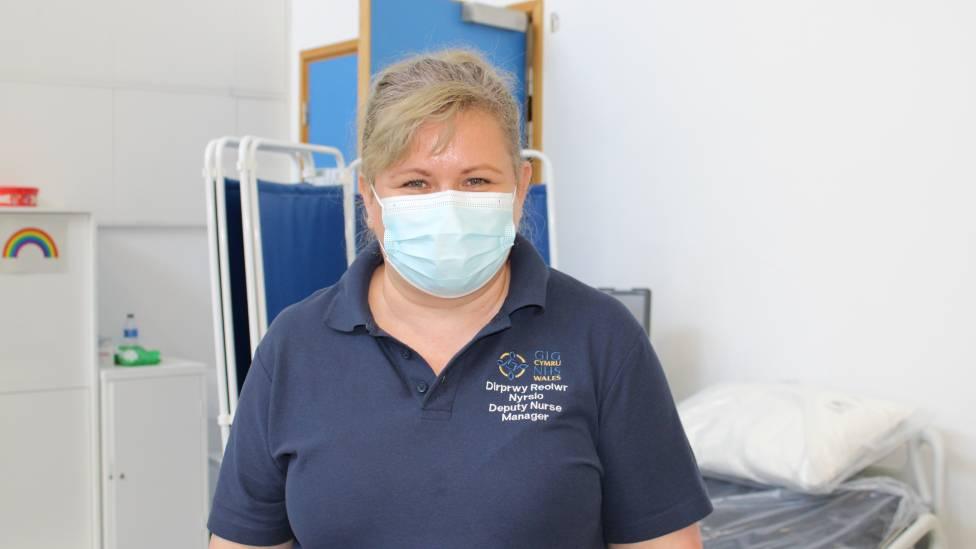
Ewa Syczuk became the first person in Wales to have a booster jab
The first Covid-19 booster vaccinations have been administered in Wales, as data showed the number of young people with antibodies has risen.
Orthopaedic nurse Ewa Syczuk, 50, was the first in Wales to get a third dose of the jab at a clinic in Denbighshire.
A total of 91.2% of the population of Wales, including 87% of 16 to 24-year-olds, have Covid antibodies, according to the Office for National Statistics.
Daily data showed Wales' case rate fell for the fifth consecutive day.
Ms Syczuk became one of the first people in the UK to receive her booster dose of the vaccine in St Asaph, in the Betsi Cadwaladr health board area, at about 11:00 BST on Thursday.
It came two days after the Joint Centre for Vaccination and Immunisation (JCVI) announced the plans for extra jabs for several groups, including over 50s and front-line healthcare workers.
She said she was pleased to get another dose after she became "very, very ill" with coronavirus in April 2020.
"There are two weeks I can't remember - my partner said he had to remind me to breathe," she said.
"A month after I got better from being ill, I could still only manage about 500 steps then I'd have to spend the rest of the day in bed.
"The vaccine is like a godsend - I couldn't wait to get mine. Everybody should have the vaccine to prevent that experience, because 19 months after having Covid I still can suffer from shortness of breath and fatigue."
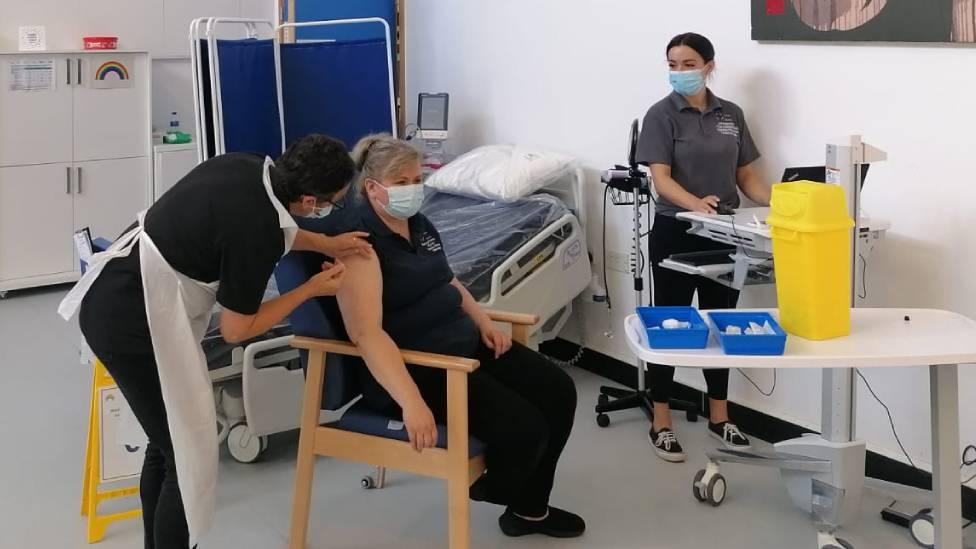
The JVCI approved booster jabs for certain groups on Tuesday
Of Wales' other health boards, Cwm Taf Morgannwg said it would start giving booster jabs to care home residents on Saturday, while the remaining five health boards will administer their first booster jabs from Monday.
"Our vaccination programme is moving into the next phase, which see the launch of the booster vaccination (by invitation), following the JCVI priority groups as before," it said in a statement.
Booster vaccination for other adults will be considered by the JCVI at a later date.
Health Minister Eluned Morgan said: "I would urge all those who are eligible for a booster to take up the offer when they are called for an appointment, as there is the possibility of reduced immunity from their earlier doses of the vaccine as time passes."
Dr Gill Richardson, deputy chief medical officer for vaccines, added: "We have already seen the benefits that come from having as many people as possible vaccinated and have been preparing for this throughout the summer.
"Vaccines remain our strongest defence from the virus and to maintain the levels of immunity that people have achieved."
Number of people with antibodies rises
The latest Covid infection survey from the ONS showed an increase in the number of people with antibodies - especially among young people - although there was a fall among the oldest age group.
There was a slight week-on-week fall in the number of over-80s with antibodies, with this figure standing at 82% ahead of the start of the booster programme.
More than 95% of 35 to 49-year-olds had antibodies, while 87% of 16 to 24-year-olds also had them - up from 56% three months ago.
More than half of 16 and 17-year-olds now also have Covid antibodies.
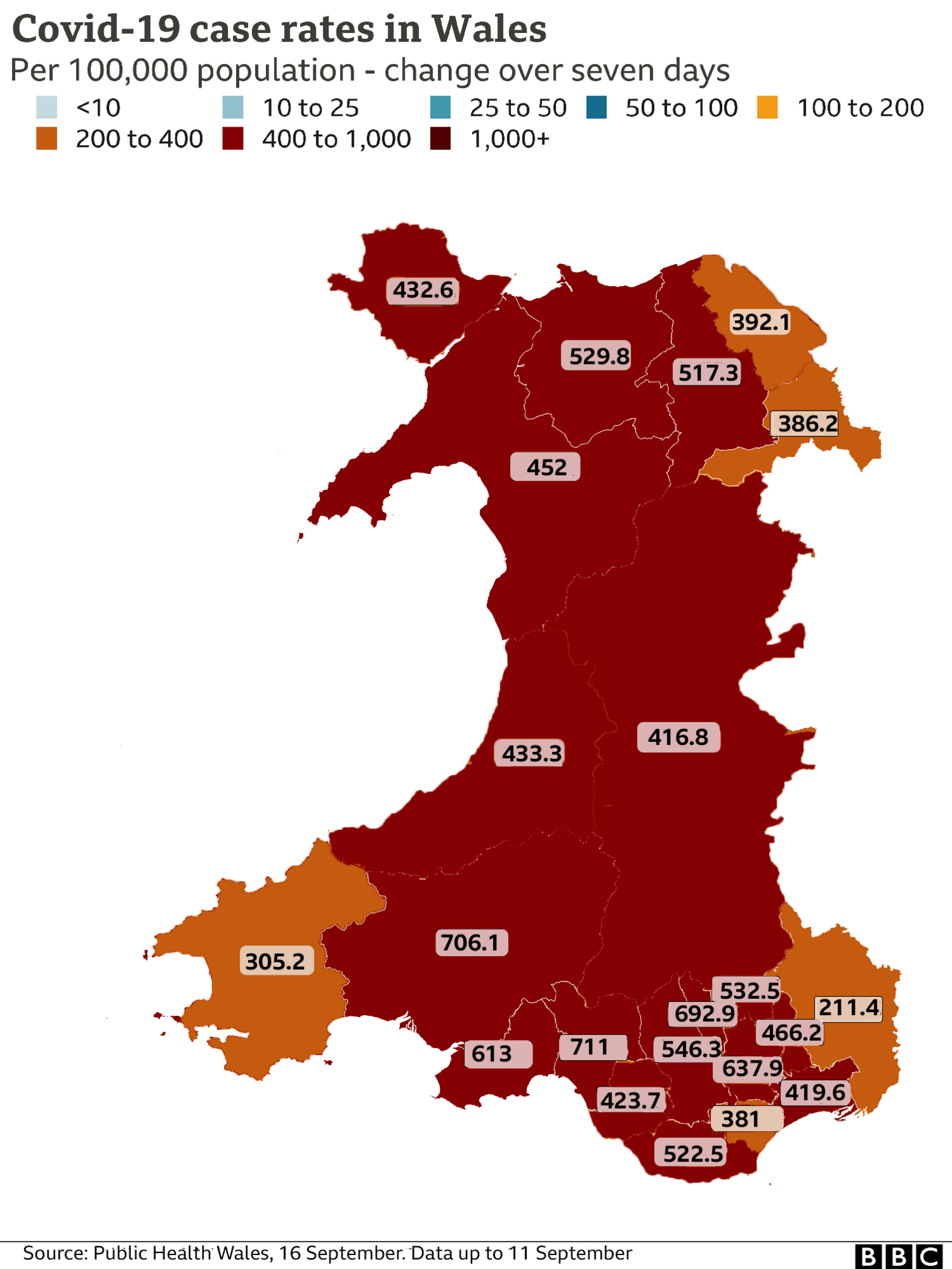

What are the latest Covid case rates?
Wales' case rate fell for the fifth consecutive day to 494.3 new infections per 100,000 people over the most recent seven-day period - down from its most recent peak of 558.6
There were 2,891 new cases reported by Public Health Wales on Thursday, as well as four new deaths, taking the total death toll to 5,774 people.
Neath Port Talbot has the highest case rate of any council area in Wales - with 711 - while Monmouthshire has the lowest at 211.4.
Carmarthenshire has Wales' second highest number of infections and the West Wales Regional Incident Management Team, which also covers Pembrokeshire and Ceredigion, said the case rates in the area was "a concern and is impacting on our public services across the Hywel Dda Health Board area".
Across Wales, there was an average of 42 Covid hospital admissions per day - slightly higher than the previous week - but less than half of the average of 89 per day at the same point of the second wave. The number of Covid patients in hospital was 520 on Wednesday.
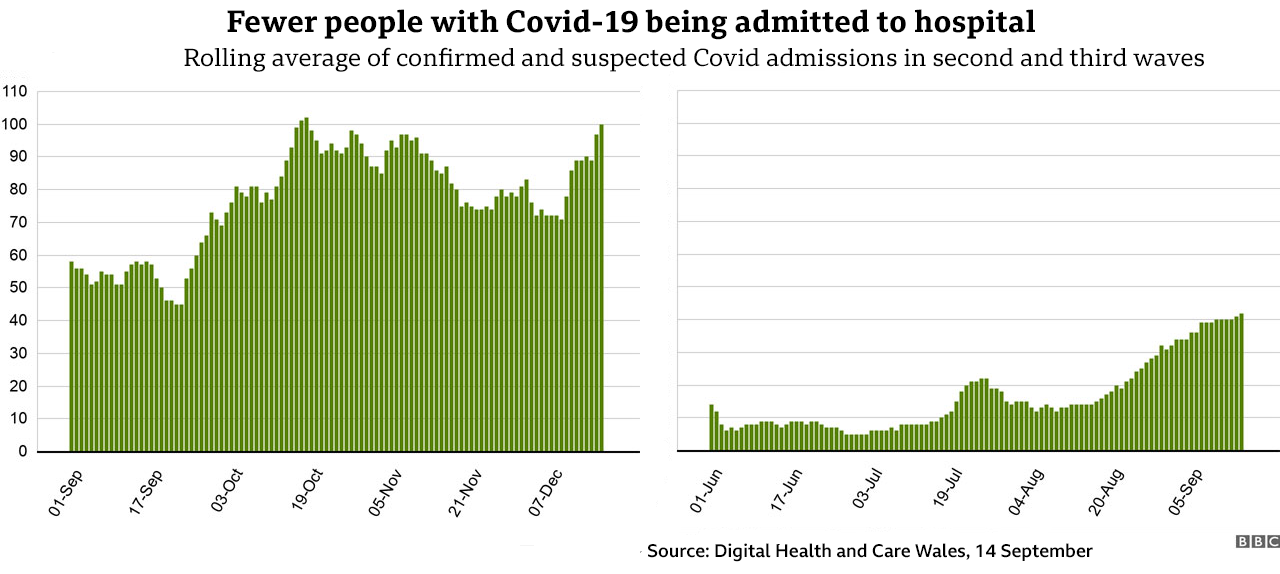

How does data compare with models?
For the first time we can accurately see how the number of Covid cases and hospital admissions compare with scientific modelling for the Welsh government, which came out earlier this summer.
Cases are higher than thought most likely - but it appears deaths are within the expected range, while hospital admissions have only recently started moving ahead of the most likely scenario.
The modelling, which was not a prediction, was based on a series of scenarios involving vaccinations efficacy, the spread of the Delta variant and people's behaviour around relaxation of Covid rules.
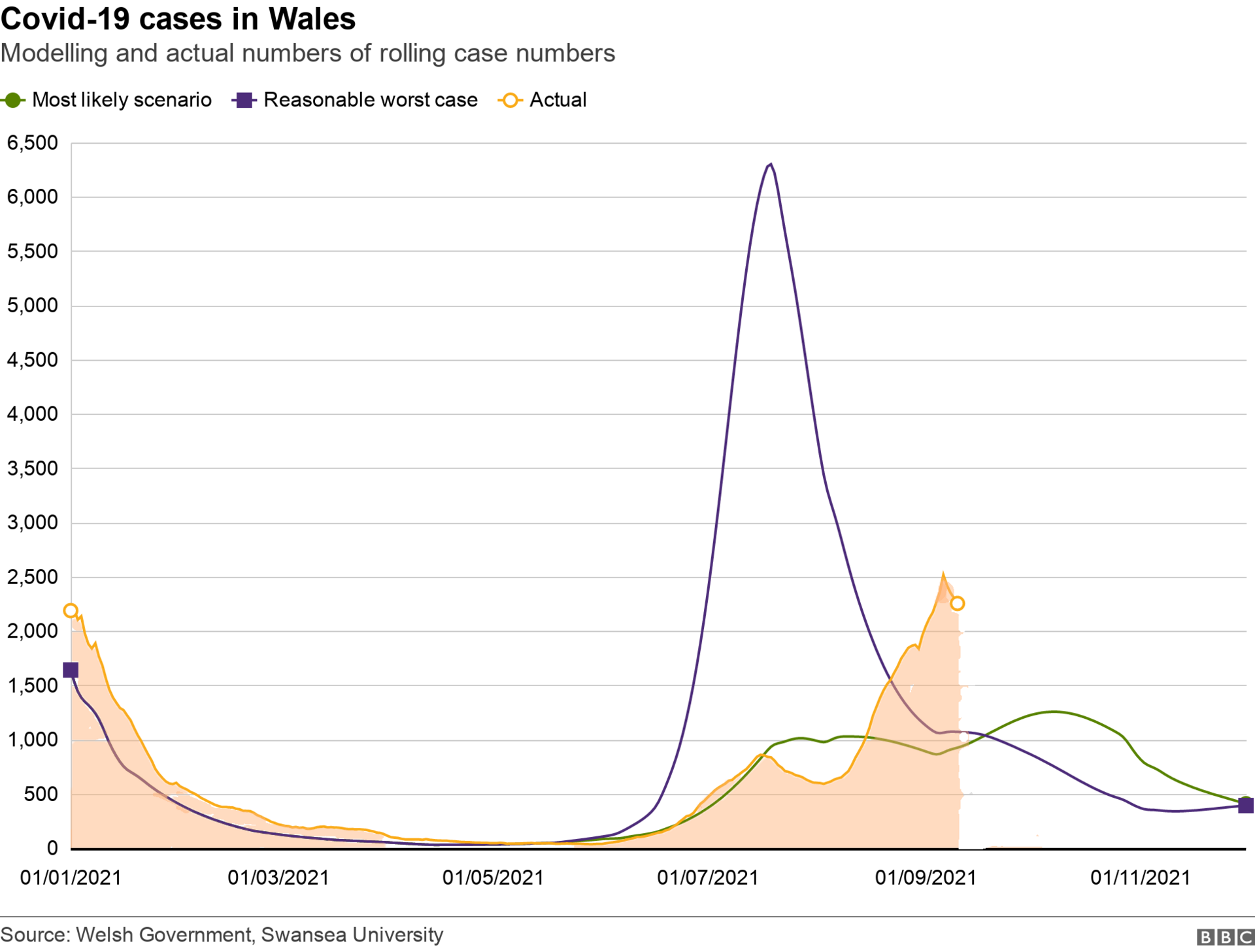

Cases were modelled to be higher earlier in the summer under the "most likely" scenario than the actual number, but the number of actual cases has surpassed both the most likely and worst-case scenarios modelled for this time of year.
However, the worst-case scenario for daily cases was modelled at 6,300 cases per day on average at the peak, but the latest figures showed cases are showing signs of falling back and measured at about 2,500 per day on average.
The modelling for hospital admissions shows since late August these have run ahead of the "most likely" scenario although they are still well below what we saw in the second wave.
The modelling for deaths remains well within the range of the most likely scenario.
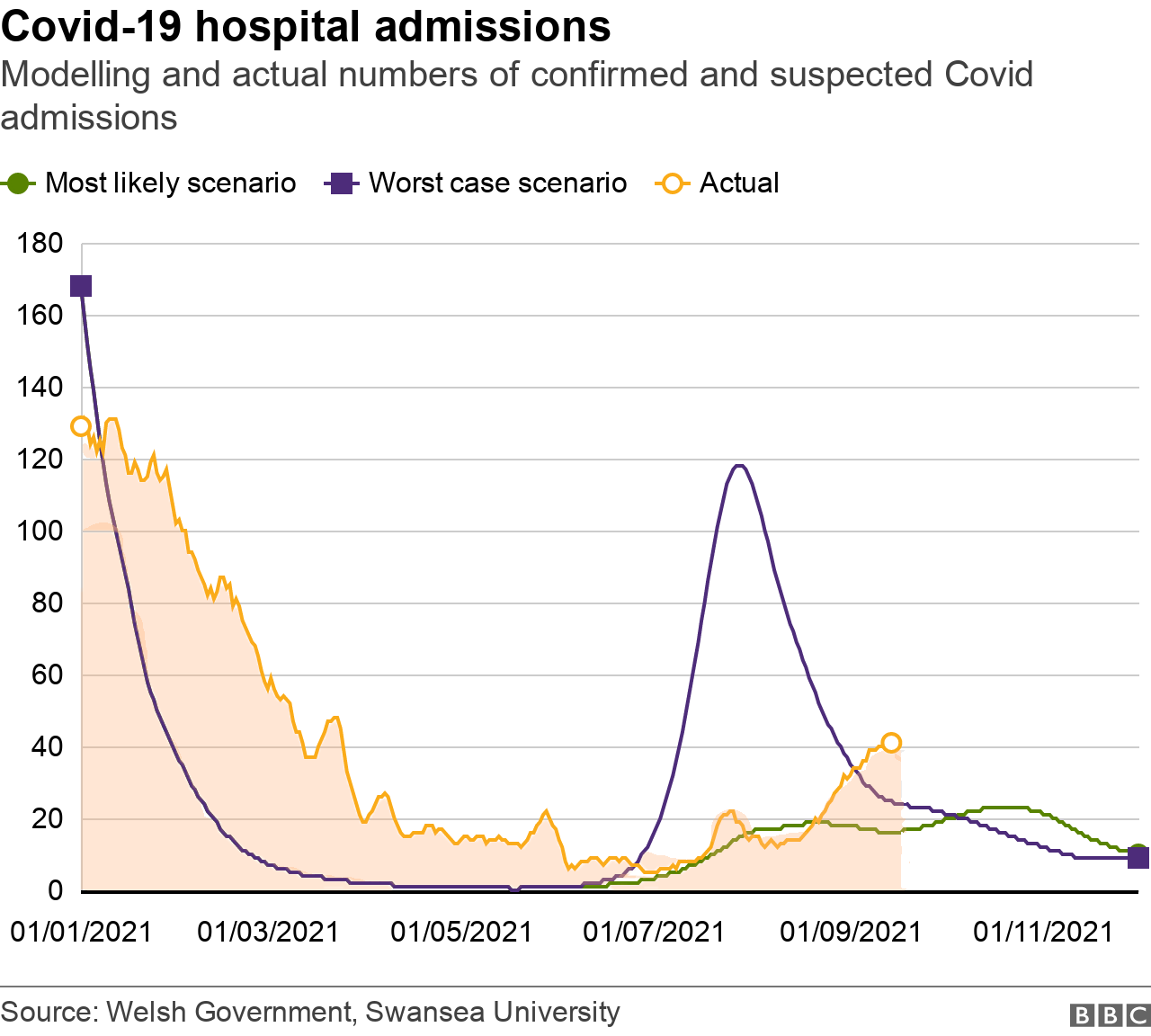

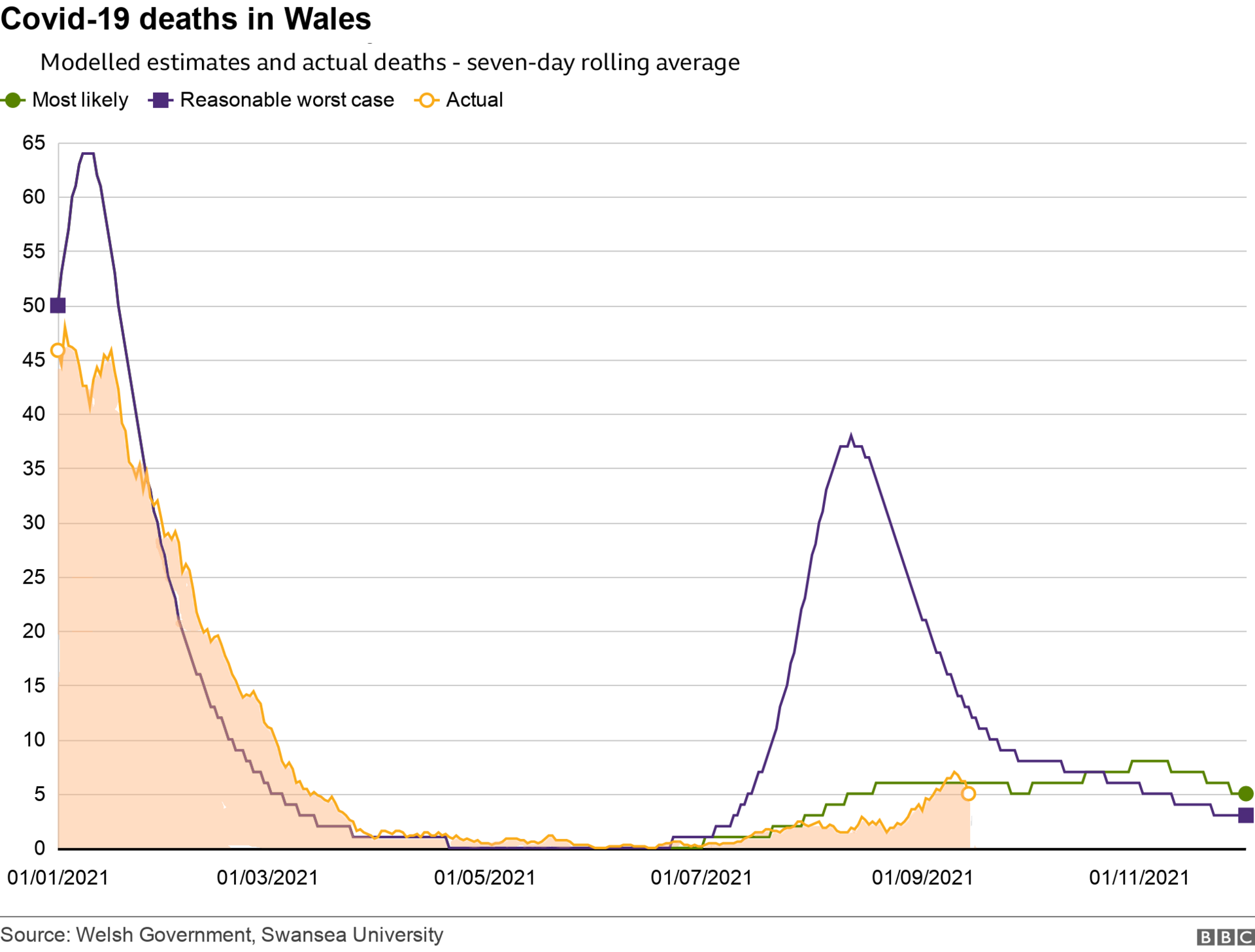

- Published15 September 2021
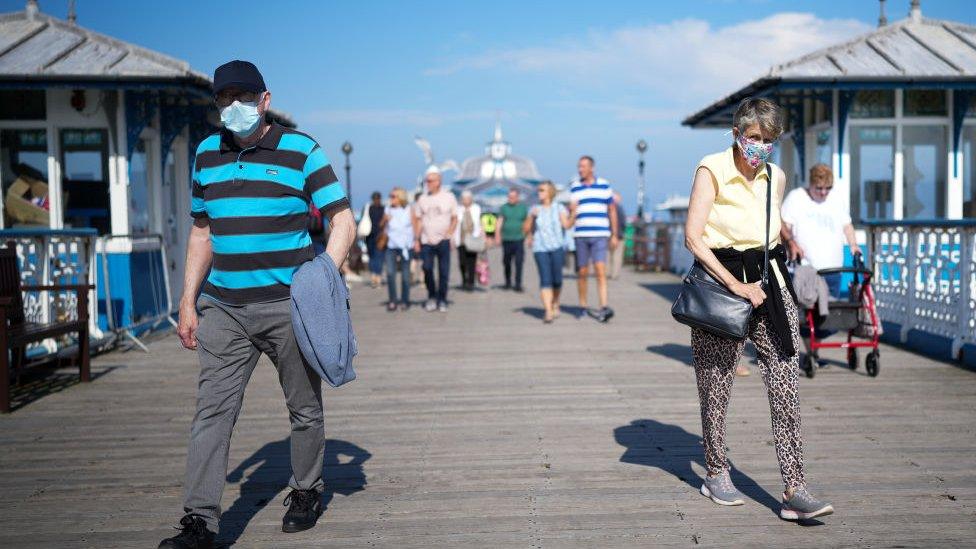
- Published28 May 2024
- Published4 July 2022
- Published27 May 2022